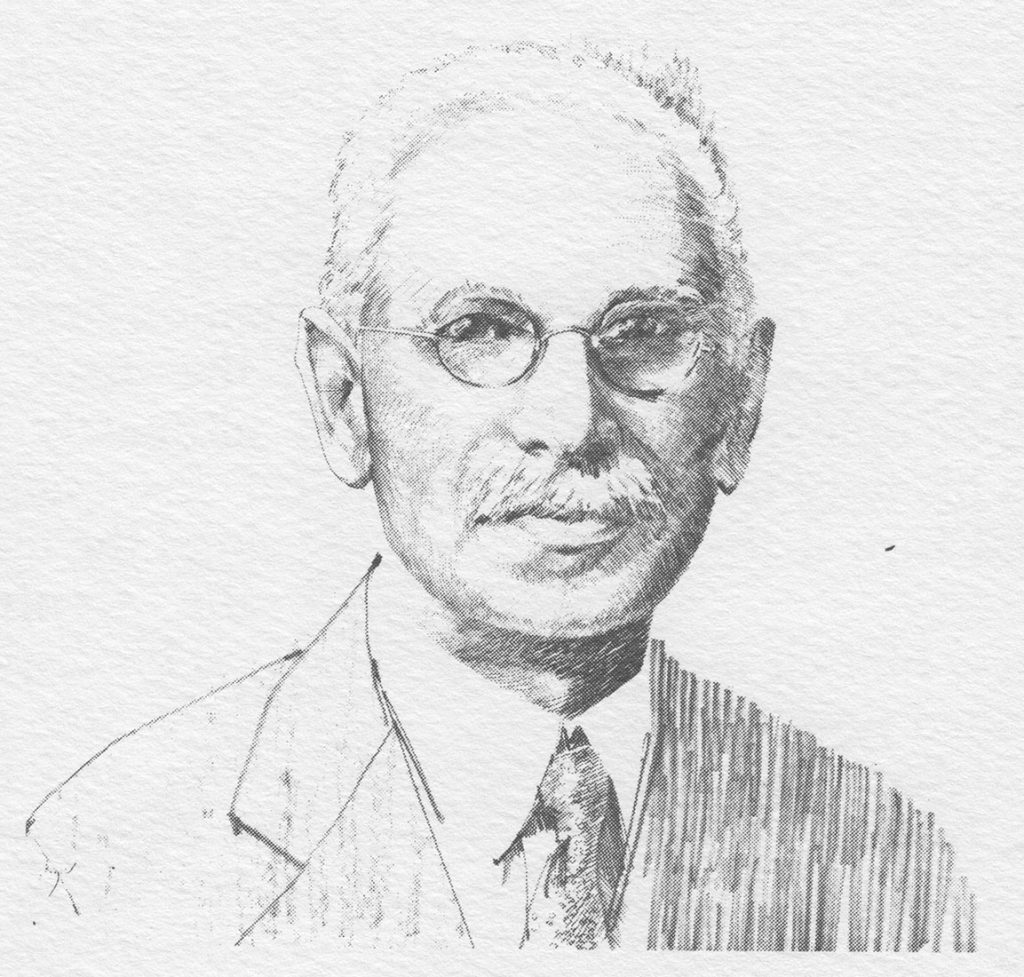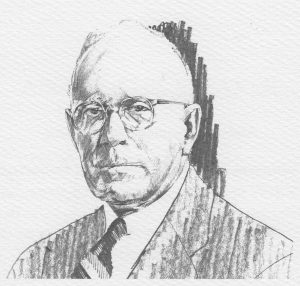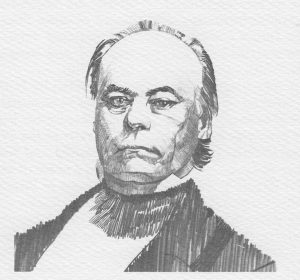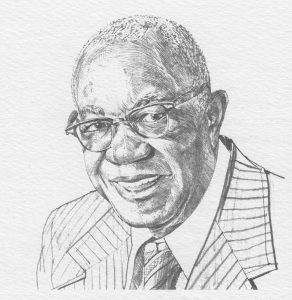Possessing little more than a penchant for hard work, a keen eye for business, and a measure of good luck, young Weil was able to start his own business at the age of twenty-two.
By the time he died, at the age of eighty-nine, his business dealings spanned the globe, and Weil himself, reported the Montgomery Advertiser, was “one of the best-known cotton merchants in the world.”
When he first arrived in this country, thirteen-year-old Isidor Weil probably had less grandiose dreams. Born in Otterstadt, Rhine-Bavaria in 1856, he was the eldest of twelve children of Aaron and Magdalene Weil. In August of 1869, Isidor and his eleven-year-old brother Herman-neither of whom spoke English – sailed from Bremen to New York. From there they traveled to Huntsville, Alabama, where they made their home with two of their uncles, Isaiah and Herman Weil, who had come to the South prior to the Civil War.
In Huntsville, Isidor and his brother attended school and learned the language and customs of their adopted country. Sometime in the mid-1870s, the young Weil brothers moved to Opelika to live and work with their mother’s brother, Mose Lemle, who operated a general store. Like other merchants in the South, Lemle extended credit to his customers, most of whom were cotton farmers, for goods purchased throughout the year. The farmers then paid their debt at harvest time with a portion of their crops. Isidor was put in charge of converting these crops into cash.
His success at this undertaking was such that the young Weil was soon able to talk his uncle into buying cotton directly from the farmers and selling it to the local mills. By 1878, the services of the Weils were in such demand that Isidor and his brother Herman, in partnership with their uncle Lemle, formally went into business as cotton buyers and exporters. In 1884, when Mose Lemle died, Isidor named the firm Weil Brothers.
By 1887, the year Isidor married Eda Oppenheimer of Cincinnati, Ohio, he was already well established as a successful cotton merchant. He was also known as one of the most public-spirited citizens in Opelika, where he took an active interest in the town’s commercial, civic and political affairs, and where he served over the years as alderman, as a director in the local banks, and as chairman of the Democratic Executive Committee for that district.
In the last decades of the nineteenth century, the company expanded rapidly as the Weils found new markets in the Southeast, in New England, and abroad. From the ports of Mobile, Savannah, and Charleston, they shipped cotton to England and to other countries across the continent. Several of the export practices Weil Brothers employed became standard operating procedures throughout the industry. The cash-on-arrival form of payment they instituted (in which the buyer cables funds to the seller’s bank when a vessel is first sighted in a foreign port) is still in use today in England, France, Germany, and other European countries.
In 1889, Herman Weil withdrew from the firm and Emil Weil, another of Isidor’s brothers, became associated with the business. By the turn of the century, Weil Brothers had developed into such a large and complex network of services that the brothers thought it necessary to move the business closer to the shipping and distribution centers of the region. So, in 1903, Isidor Weil moved his growing business and his growing family (now two sons, Adolph and Leonel, and a daughter Helen) to Montgomery.
Once again he took an active interest in the welfare of the community. Weil was one of the organizers and directors of the Exchange National Bank; he served as director of the Alabama National Bank Company, the Union Bank & Trust Company, the Capitol National Bank, and the Peoples Cotton Mills. He helped organize and served as vice-president of the Memorial Hospital, was a director of the Anti-Tuberculosis League, the Associated Charities of Montgomery, and other public welfare organizations.
During World War I, Weil became a leading member of several committees in charge of the sale of Liberty Bonds. He chaired three separate drives to raise funds in Montgomery for European relief after the war and was Alabama State Chairman for the Jewish Relief Fund. A thirty-second degree Scottish Rite Mason and a member of the Shrine, Weil was also an active member of the Reform Jewish congregation, Kahl Montgomery, which he served as a member of the board of directors and as president.
When Isidor’s sons, Adolph and Leonel, returned from service after World War I, they took over management of the company and were soon joined in the business by Lucien Loeb, Isidor’s son-in-law, and Alvin Weil, Emil’s son. Isidor Weil, however, never retired from the company he had spent his life building, and he continued to take an active interest in Weil Brothers’ affairs for the next two and a half decades.
These were years of growth and expansion for the company. They were also years of change as the transportation of cotton shifted from steamboats to trains and trucks, and as the center of the cotton industry began to move slowly from the Southeast to the far West. Weil Brothers shifted with the times. They opened offices in Memphis, Dallas, Houston – and later in Fresno, California – and maintained offices in New York, where the company had become a clearing member of the New York Cotton Exchange.
After World War II, when cotton production increased dramatically in many other countries, Weil Brothers opened affiliated offices in Mexico, and it pioneered the marketing of Central American cotton, especially in Nicaragua, Guatemala, and Salvador. As the trend in world textile production shifted from Europe to the Orient, a selling office was opened in Osaka, Japan.
In the 1950s, Adolph’s two sons, Adolph, Jr., and Robert, assumed the company’s management, and under their direction, the firm has continued to expand. With two partnerships in Mexico and South America, Weil Brothers now deal in cotton in some twenty-four countries throughout the world, buying and selling between 800,000 to 1,000,000 bales per year through its extensive affiliated network.
Isidor Weil, of course, did not live to see all of his company’s growth. Before he died in 1946, however, he had watched the small business he had begun in 1878 develop into a worldwide concern. He had seen the fruits of his labor passed on to his children and to his children’s children, and he must have understood, as perhaps only an immigrant can, what it is to attain his own version of the American Dream.




